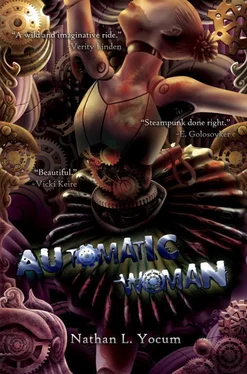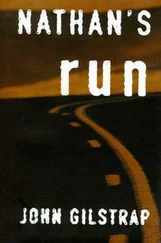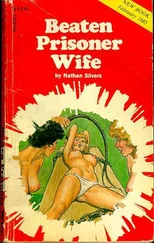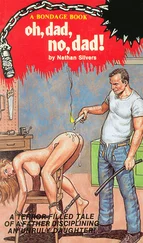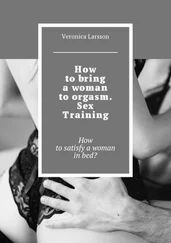Nathan L. Yocum


One
Statement of Jacob Fellows aka Jolly to Whitechapel Metropolitan Police. Transcribed from audio-cylinder, August 17, 1888.
I am a jolly fellow. My name is actually Jacob Fellows. The gentlemen in my office refer to me, literally, as Jolly Fellow, which is their euphemism for my rotund figure. There’s a long precedence of fat men also being funny men. I don’t regard myself as a man of mirth or good humor. In truth, I’m more apt to crack skulls than I am to make silly gestures, but the assumption stands and it’s easiest for my mates to pigeon-hole me in what they already hold true.
I’ve often looked for a solution to my roundness. I’m physically active at work and in leisure. I love football and am bloody hell on gears in the goalie box. Nevertheless, my cheeks are round and my jowls hang.
Whenever blokes find out that I’m a thief-catcher by trade, that I’m an operative for the Bow Street Firm, their eyes light up and I am forced to tolerate the inevitable comments.
“Oy, what kind of man are you going to run down?”
Or, “business must be good, my friend!”
Or my personal favorite, “your wife must be a jolly good cook, mate.” I’m not married, never had much luck with the female folk, and any reminder of this is liable to put me in an ugly disposition. An ugly mood means ugly deeds and I’ve hurt fellows over the odd comment. I’m not proud of that, just stating the truth.
My size does give some advantages. In the firm I’m generally referred to as a Front Doors Man. Sometimes we have to burst in on thieves or break into unsavory dens to retrieve that which belongs to our good paying clients. A man like me gets through the door first so I can throw in a little rough-and-tumble in case any bloke has a problem. I also do leg work and one-man investigations, but my services are best rendered in the grapple.
So they call me Jolly Fellow, or just Jolly. You can call me Jolly. I’ll call you officer, or guv’nor, or boss, or whatever you prefer. I know how authority likes titles; been round that bend myself. I know the value of a good dose of respect. It was working for authoritarian blokes like you that got me into this quandary. I’ll lay it out, and you can tell me what might or might not stick with the magistrate, savvy?
It all starts with the doctor. Dr. James Saxon, my client, a man of strange habits and stranger reputation. He telegraphed my office a report of theft, as all our clients are wont to do. One of our machine clerks filed the initial proceeding through Central Bureaucracy and I was in rotation for the assignment. The doctor’s credit punch card showed limited means, so it was me and only me who took the house call. Keep in mind, the good doctor wasn’t a bone saw or a physician; he was a doctor of science. I imagine him useless with a scalpel or any of the other trade tools of what I’d consider a legitimate doctor. Also, he was clearly beneath the financial and social standing of a regular doctor. Regardless of trade or social standing, his pound notes, though limited, were real and I took to the investigation with my usual enthusiasm.
I hired a hansom cab to his home address, a penny theater in one of the lesser neighborhoods of London. I imagined he kept house in an apartment in the upper floors, but made no confirmation of that assumption.
“Come into my home, lad,” the doctor said with an offered hand.
I don’t like being called “lad,” but he was really quite distressed and I gave him a pass. Besides, this sire was an old one, and by old I mean venerable. His pate was bald and pink and his eyebrows bushed out like hummingbird nests. I figured by that age, he’d earned the right to call anyone lad or lass. In respective age I can’t imagine many who’d be his equal.
I shook his hand and shuffled into his homestead. I waited for him to give me his story, but he was distraught and at an obvious loss for words.
“Please Mr. Fellows, you must find her!” he spat out, and gripped my wrist with more strength than I would have credited him for.“I’ve poured so many years of my life into her, I must have her back.”
“Look granddad, I’ll get the job done, don’t you worry, but you have to set me on the right path. Who are you talking about? Who got snatched?”
“Better I show you.”
The doctor beckoned me to sit in the front row of the playhouse. I claimed a squat and he left me by my lonesome. The gas lamps dimmed; curtains drew back and dancers leapt and pirouetted onto the stage. An orchestra started into the second act of Swan Lake and the dancers followed suit. I was shocked at first, having neither seen nor heard any musicians tuning in the pit. I’d been to Swan before and these blokes were giving a spot on performance. Normally I know better than to stand and meander during a performance, but given I was an audience of one, I figured convention did not apply. The pit was lifeless; not a single musician sat or played and yet still there emitted Pytor Tchaikovsky’s pounding notes in all their liquid fury. The crafty doctor had rigged a cylinder phonograph to a dozen brass amplifying tubes. The contraption boomed gloriously and it was no wonder the quality was so good. The old doctor had committed the original Bolshoy score to wax. His tubes arched and formed a line of mouths along the outer edge of the orchestral pit. The great contraption amplified sound in all directions at once. Every horn’s blow and timpani’s pound resounded off of the theater walls. I’d never seen nor heard anything quite like it and my high opinion of the doctor was solidified in that moment.
I looked up to the dancers. Their arms and legs moved fluidly, but their eyes remained cold and expressionless. They gazed forward into the empty audience seats without response or reaction. None of them noticed me and continued through their stances. Suddenly, a right handsome bloke, the prince as it were, spun onto the stage. He took to the center stage and lifted his arms, as though to catch the beautiful Swan Princess, only he held his arms to empty air. The prince swung about, without lady accompaniment, and performed what I credit as a perfect, though partner less, completion of the first dance. The house lights came back on and the music stopped suddenly, as did every dancer.They froze in place; arms in hold, legs extended, not a shiver or groan of discomfort.
“Do you know anything about gear ratios, Mr. Fellows?” The doctor called from backstage.
“I’ve heard the term,” I called out. The doctor gave no response.
I ascended the stage stairs and had my first close-up of the doctor’s dancers. Words fail me in describing them. They were man-sized statues with fully articulated arms, legs, fingers, necks, and probably toes, though I did not get the chance to inspect. Instead of skin, they were encased in stained white pine, which gave the hue of human dermis from a distance. Their eyes were custom glass orbs, of the type ordered for soldiers or sailors who’ve lost an eye and are too vain for the patch.
The doctor strode to center stage; he was now wearing the leather gloves, tool belt, and apron of a mechanic.
“Gear ratios, Mr. Fellows. Smaller gears link with larger gears, all connected with belts. A little power turns to a lot of movement and with enough gears, anything is possible.”
“What do you mean, then?” I was still taken aback by his dancers. I wasn’t sure what he was getting at.
Читать дальше
